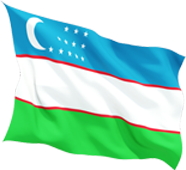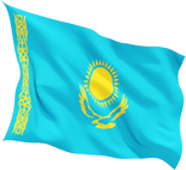In order to ensure true independence, impartiality, openness and transparency in the work of the courts and to improve the efficiency and quality of justice, our country is carrying out large-scale judicial reforms as part of building a New Uzbekistan. The main purpose of this is to ensure in practice the constitutional right of citizens to justice, the reliable protection of their rights and freedoms through the courts and to increase their confidence in justice.
It is known that ensuring the legality and fairness of the administration of justice is directly related to the independent activity of the judiciary and judges. In this regard, the introduction of transparent mechanisms to guarantee the impartiality and unbiasedness of judges, the functioning of the judiciary independently of other branches of power at the legislative level, ensuring the active participation of the judicial community and civil society institutions in this process is considered one of the important tasks.
Therefore, “It is necessary to fully adapt the system of formation of the judicial corps to the principle of independence of the judiciary, to ensure the participation of the general public in this process,” stated the head of the state Shavkat Mirziyoyev. – For this purpose, it would be advisable for the judicial community to fully assume the task of appointing district, city and regional court judges. In this regard, it is necessary that the issue of public opinion and accountability to them be fully expressed”.
According to the Law of the Republic of Uzbekistan “On Courts”, the formation of the judiciary is carried out by the Supreme Judicial Council of the Republic of Uzbekistan in strict accordance with the principle of independence of judges. The formation of the corps of judges is based on the equal rights of candidates for judicial positions, irrespective of sex, race, ethnic origin, language, religion, social origin, creed, personality or social status.
The legislation also establishes special requirements for judges appointed for the first time and for the next term. In particular, the main criteria for the selection of judges for appointment for the first time are impeccable reputation, honesty, competence, possession of sufficient life experience, absence of diseases or physical defects preventing the exercise of justice, while the main criteria for the selection of judges for a new term of office and other judicial positions are impeccable reputation, honesty, impartiality, fairness and competence during the period.
The formation of the judicial corps also includes the process of preparing future judges for the profession. Therefore, at this stage, ensuring the independence of judicial candidates, ensuring enrollment and transparency of the educational process is one of the main issues.
By the Decree of the President of the Republic of Uzbekistan dated January 6, 2019, for the first time in our country, a special educational and research institution that trains candidates for judges and improves the qualifications of judges – the Supreme School of Judges under the Supreme Judicial Council of the Republic of Uzbekistan has been established. Uzbekistan. Legislation establishes that a candidate for a judicial position may be appointed to a judicial position only after successfully completing the training course for candidate judges, which is organized at this School.
Admission to the training course is based on the principles of equality, openness, transparency and fair choice, only applicants with high scores in the entrance examination are admitted. The following measures are established to ensure the transparency of the entrance examination:
First, the Admission Committee shall publish information on the procedure for accepting documents from applicants, deadlines, names of specialties and quotas on the websites and social media channels of the Supreme Judicial Council, the Supreme Court, the Supreme School of Judges and other media at least two months prior to the start of the admission tests for training courses. The application and documents may be submitted in writing or electronically to local Qualification Collegiums of judges or directly to the Supreme School of Judges.
Second, the list of applicants whose documents have been accepted, as well as information about the tests for the next stage, are openly published on the websites of the Supreme Judicial Council and the Supreme School of Judges.
Third, the admission tests consist of five steps, namely a psychology test, a specialization subject and English language test, an essay on a legal topic, and an oral interview.
The psychology test is organized electronically using a specially developed information system “Psychological Test”, the result of which is evaluated by a specialist psychologist. Only those candidates whose psychological condition is considered positive and satisfactory according to the results of the psychological test are allowed to participate in special tests.
The Admission Committee publishes in advance at least 50 essay topics on legal topics on the websites and social media channels of the Supreme Judicial Council and the Supreme School of Judges. On the testing day, applicants write an essay on 3 topics randomly selected from the published topics. The essay is written in a notebook, which stands strictly by the score, numbered, each sheet of which is stamped with the seal of the Admission Committee and signed by the Chairman of the Commission. At the end of the test, essays are packed and sealed in separate boxes with special encryption. The essays are evaluated by a group consisting of representatives of the Supreme Judicial Council, the Constitutional Court, the Supreme Court, judges of lower courts, the Supreme School and other educational institutions.
The interview is conducted by a Commission consisting of representatives of the President Administration, the Constitutional Court, the Supreme Court, the Supreme Judicial Council and lower courts, the Supreme School of Judges and other institutions of higher legal education of the Republic of Uzbekistan. The result of the interview shall be evaluated by each member of the commission and divided by the number of members of the commission and its average score is calculated. The results of the interview are recorded in a separate assessment list and submitted to the Admission Committee signed by the members of the Commission.
In order to conduct the tests in an open and transparent manner, the process of conducting all tests is fully videotaped. Also, based on the decision of the Admission Committee, representatives of other agencies and the public may be involved as classroom observers.
Complaints about disagreement with the results of psychological testing, test trials (except for foreign language), essays and interviews may be filed within 24 hours from the date of publication of the test results. The decision of the Supreme Judicial Council shall form an Appeals Commission to consider these complaints. Complaints shall be considered within three working days. If necessary, members of special commissions, audience observers and other persons may be involved in the process of complaint consideration.
Based on the results of the review of the complaint, the Appeals Commission takes one of the following decisions:
- keep the results of the entrance test unchanged and dismiss the complaint;
- satisfy the complaint of the applicant.
In case of satisfaction of the applicant’s complaint, the Appeals Commission shall issue a final grade for the applicant’s test assignment and inform the applicant of the final decision.
The Admission Committee forms the list of students admitted to the training course, starting with the applicant with the highest score, in descending order up to the number specified in the admission quota by summing up the applicant’s scores on the results of specialization tests and interview.
According to the protocol of the Admission Committee, the Director of the Supreme School of Judges issues the Order on enrollment in the training course and information about it is immediately posted on the social media channel as well as on their website of the Supreme School of Judges.
Our current legislation establishes a transparent system for the appointment of judicial candidates to judicial positions. Specifically,
– information on vacant judicial positions is published on the official website of the Supreme Judicial Council;
– a candidate for judges has the right to apply directly to the Supreme Judicial Council to participate in the competition for vacant judicial positions;
– the list of contestants will be published within a day on the website of the Supreme Judicial Council;
– consideration of candidates to be appointed to the position of judge for the first time shall be carried out on an alternative basis;
– during candidates’ selection for first-time judicial appointments, candidates for a new term or for other judicial positions, various methods of training may be used in a manner determined by the council – interviewing, testing by independent experts, preparation of essays on the topic of given problems, electronic survey program to determine the level of knowledge;
– other participating candidates have the opportunity to follow the interview process online.
A judge who has expressed a wish to stand for a new term shall apply all the necessary documents to the relevant Qualification Collegium of Judges no later than six months prior to the expiration of the term of office. A judge who has expressed a wish to stand for another judicial position shall apply with indication of reasons and grounds to the Council. The High Qualifications Collegium of Judges shall submit to the Council an opinion on the possibility of appointing a judge for a new term or to another judicial position.
After the end of the term of a judge, the Council shall, within three months, consider the suitability or otherwise of a candidate for the position of judge. After the end of the term of a judge, the Council shall, within three months, consider the eligibility or ineligibility of a candidate for the position of judge. In the event that a judge does not meet the requirements for the position for which he or she is applying, the Council shall place on the agenda the issue of his or her consideration for a lower judicial position. The issue of submission to the position of judge of persons who have previously held the position shall be considered in the manner prescribed by law for judges submitted for a new term and for other judicial positions.
The independence of judges shall be ensured, inter alia, through their election and appointment in accordance with the procedure established by law. Consequently, the establishment of the procedure for the selection, training and appointment of judges by law, as well as the introduction of a transparent mechanism for its implementation in order to practically ensure the constitutional principle in question is an effective guarantee of the independence and impartiality of judges.
Dilshod Аripov,
Deputy Director of the Supreme School of Judges
under the Supreme Judicial Council
of the Republic of Uzbekistan for scientific
and informational-analytical work











